After The “Real Struggle” Of 2022, Arno Kamminga Talks Adam Peaty, Exhaustion & Popovici Inspiration
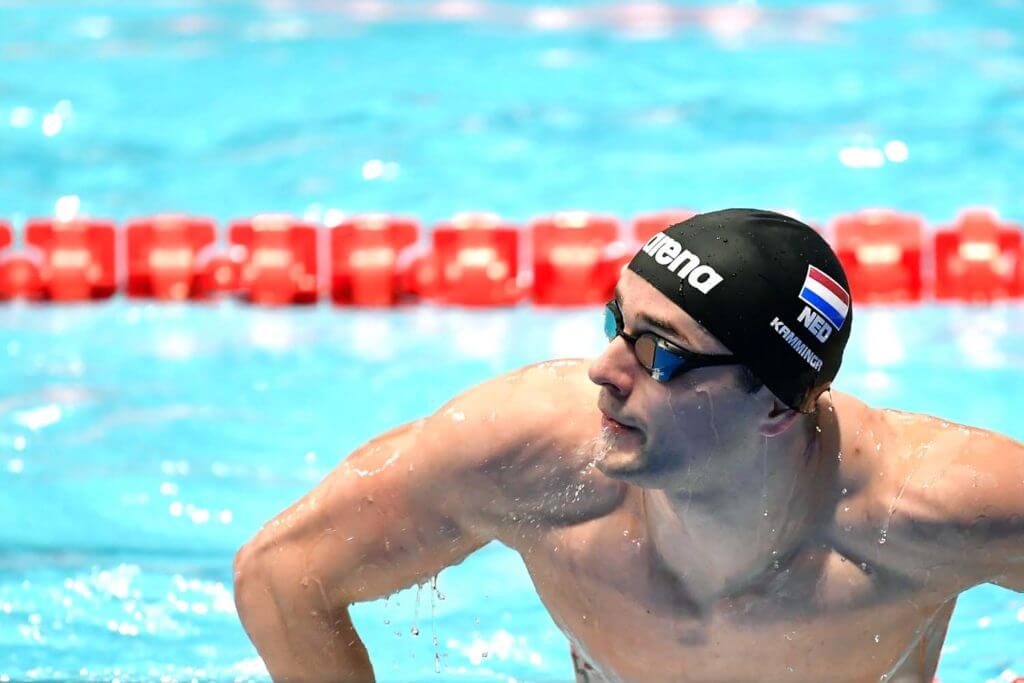
Editorial content for the 2023 World Aquatics Championships is sponsored by FINIS, a longtime partner of Swimming World and leading innovator of suits, goggles and equipment. This time two years ago, the final countdown was on for the Tokyo Olympics which had been delayed because of Covid-19. The Games in the Japanese capital were like no other: no spectators in the stands, social distancing, face masks. Instead, any familiarity and sense of normality and order was provided by those racing at the Tokyo Aquatics Centre. Adam Peaty became the first Briton to defend an Olympic swimming title when he won the 100m breaststroke, extending his record of having never been beaten over two lengths of a long-course pool. Arno Kamminga made history in second as the first Netherlands man to have claimed an Olympic breaststroke medal before going on to win a further silver over 200m. Nicolo Martinenghi won bronze 21 years after Domenico Fioravanti became the first Italian man to visit the 100br podium when he won the title at Sydney 2000. A year later Peaty was ruled out of the World Championships in Budapest after fracturing a bone in his foot. Arno Kamminga: Photo Courtesy: Andrea Staccioli / Deepbluemedia / Insidefoto Martinenghi claimed the title ahead of Kamminga who was suffering from severe sickness – later compounded by Covid – that forced his withdrawal from the 200 and seriously affected him for the rest of the year. Now the Fukuoka worlds are upon us and again Peaty is absent as he focuses on his mental health having spoken of being on a self-destructive spiral, burnt out but with Paris 2024 in his sights. His achievements speak for themselves but Kamminga too has written his own lines in the history books. He was the second man inside the 58-second barrier when he went 57.90 at the Netherlands Team Time Trials in April 2021 before lowering that further to 57.80 in Tokyo. The 27-year-old then became the fourth member of the 2:06 club in the 200, joining Anton Chupkov, Matthew Wilson and Ippei Watanabe in 2:06.85 in December 2020. He’s won medals at every major international competition in the long and short-course pools and his PBs from 50-200 are all national records. For him, Peaty’s absence is cause for sadness but also understanding and empathy. Kamminga told Swimming World: “For me how I see it is if you have to give his career a mark or something he would get 11 out of 10 for all the things he has achieved. “He has been on top of his game for so many years, for so long, I know what it takes to be at that level. “The amount of sacrifice you have to make, the amount of things you have to put aside and just push through. “I can kind of see why this has happened to him: like going on for so many years, pushing so many things aside and also achieving everything possible. “At some point you’re probably going to ask, right what’s next? Because normally you are always chasing something but when you finally achieve it and achieve it multiple times then what is there to chase? “So I can see where he is coming from but most of all it’s sad. “It’s sad for everyone. It’s sad for swimming fans, it’s sad for me because I like racing him at his best and it’s also really sad for him. “I wish I could see him happy like the old days you know? That is what I wish for him and I hope he wishes for me. “I hope when we are swimming the Olympic final all eight people are happy and happy to be there. I hope that that’s the case. “I really hope that he gets that feeling back and he’ll be at the top of his game next year but if he decides otherwise, I can only respect it.” Peaty isn’t the only swimmer who’ll miss worlds as they seek to concentrate on their wellbeing. Kristof Milak – the Olympic and world 200 fly champion – withdrew last month, citing physical and mental health exhaustion. Caeleb Dressel spent months away from the pool after bowing out of Budapest mid-competition and although he didn’t qualify at the US trials, the meet represented a victory for the seven-time Olympic champion. Kamminga also had to deal with physical exhaustion and mental fatigue last year, a spiral that started when he fell sick on his first day in Budapest. Arno Kamminga & Nicolo Martinenghi: Photo Courtesy: Andrea Staccioli / Deepbluemedia / Insidefoto He explained: “I did the 100 prelims and semis which were okay and then the morning of the final, I had a really hard talk with my coach about whether we should even swim the final because I was feeling so, so awful. It was crazy: I felt worse than after an entire competition and that after just one day. “I felt absolutely horrible, horrific that day. I really didn’t want to go there. On the bus ride to the pool for the final I felt so bad. “But I still wanted to go and push through and I still came away with a silver medal which looking back, was a small miracle. “The day after we also got a bronze medal on the mixed relay which was quite surprising but I didn’t feel any better. “I did the 200 heats……after that I was just done. “After being sick and racing and pushing through, my body was just completely done so that’s when we decided to scratch the 200 which was definitely the hardest choice in my career so far. “Because every fibre in my body wants to race – you’re going to a World Championships, you want to race – at that point my body just wasn’t ready for it so sadly I had to decide to withdraw.” Following worlds, Kamminga contracted Covid. Drained, tired and completely devoid of energy, he was training once a day leading up to the European Championships in Rome. He finished seventh in the 100 breast, 1.88secs off his national record in 59.68 as Martinenghi won the continental crown, and although he was part of the Netherlands that won the mixed medley relay, Kamminga pulled out ahead of the 200. “Going into Rome I felt like a ghost: I had no energy, I was pale, I was barely hanging on and so we withdrew over there because it didn’t make any sense to push through.” He went on holiday and spent more than a month out of the water – his longest break for years – after which he decided with Mark Faber – his coach at the High Performance Centre in Amsterdam – to take some further time off. Up until Christmas he trained five hours a week rather than the usual 30 plus, something he knew he needed but at times found hard such is the athlete’s natural desire to compete and train. Time flew by: still exhausted, he slept with little energy for anything else. Arno Kamminga: Photo Courtesy: Andrea Staccioli / Deepbluemedia / Insidefoto He spent time with friends and family and worked with the Netherlands support staff although he admits “it was a hard time sitting on the sideline watching everybody swim and being stuck, basically a waiting game giving my body time to recover and relax.” He dipped his toes into competition waters late in the year, posting 58.90 and 2:10.39 at the Rotterdam Qualification Meet in December, a pleasant surprise, before increasing his workload in January. Looking back at 2022, he said: “That was a real struggle: I’m back now for six months. It has been a hell of a ride: it’s been rough, it’s been difficult but it’s been going better month by month. “It was really good coming home with those medals especially because it’s pretty hard mentally on yourself when you’re getting sick or you have your down days during a competition because you train years and years and years for those competitions. “This is the first time I feel competition-fit again which is really nice.” Through adversity Kamminga learned about himself mentally and physically as well as how to communicate with Faber and all the support staff. He will be in uncharted waters in Fukuoka given no winter block of training has meant different preparation. Altitude training in Flagstaff, Arizona, in May was followed by the AP International, Dutch Nationals and the Sette Colli with his season’s bests standing at 58.90 over 100 and 2:09.34 in the 200. Kamminga says it’s “just a matter of time before I am back at my level and even beyond” although there’s the not knowing whether that will be at worlds or after. He said: “For some part of me that is really hard because I want to do everything perfect so I want to go to worlds with a perfect preparation and race the best. “At Tokyo I got beaten by Adam and by Zac (Stubblety-Cook) but that didn’t make me sad: obviously I want to win but I was beaten fair and square. I was there at my best, I gave it my all and they were just better on the day so I can just only respect that. “But when you go into a competition where you know your preparation isn’t perfect and you don’t feel at the top of your game, then it’s harder to accept when someone wins because you’re like ‘ah, but I can beat him’ so that is going to be probably my chance this summer but I am just going to enjoy it. “I can finally enjoy a swimming competition again and be back at the pool and of my preparation coming into Paris, everything is on track.” Kamminga believes a 58.5 will make the 100 podium in Japan although he describes the four-length race as “really a hit or miss right now” for him given his lengthy break from the water. Neither will he contest the 50. Arno Kamminga: Photo Courtesy: Kees-Jan van Overbeeke He does though predict world records will fall and while ruing the absence of a host of swimmers, he’s inspired by the likes of David Popovici and Milak. He said: “We are all basically the same era and when we grew up in Europe we all had some examples in our countries swimming fast, like idols. “I had Pieter (van den Hoogenband), Kristof had Laszlo (Cseh) – I think that definitely helps, getting the best people into swimming and pushing hard and especially dreaming, you know. “I think it is mostly just nice to see the level coming up of European men, especially it comes and goes. “I like it because it also means that we have better competition at Europeans and the level gets better and better. “When I see Kristof do a 2 fly it’s just inspiring and the same with David: it’s almost when you see those guys doing that stuff you’re like ‘oh, I want to race like that as well’. “Obviously in breaststroke but that kind of way with full power, full commitment.”

After The “Real Struggle” Of 2022, Arno Kamminga Talks Adam Peaty, Exhaustion & Popovici Inspiration
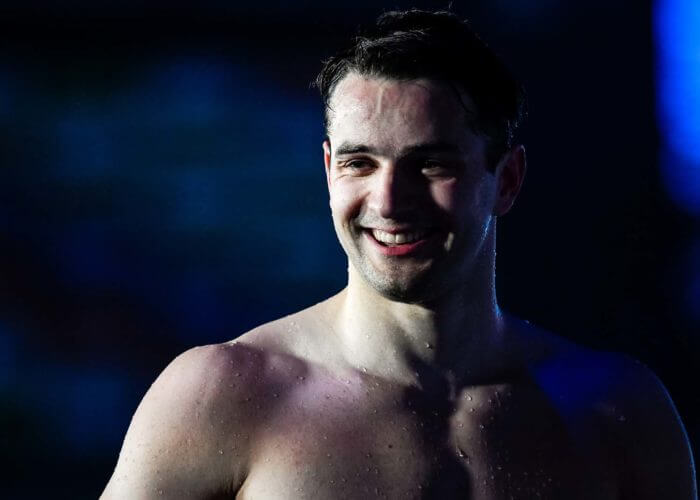
Sickness, Exhaustion And A “Small Miracle” In Budapest
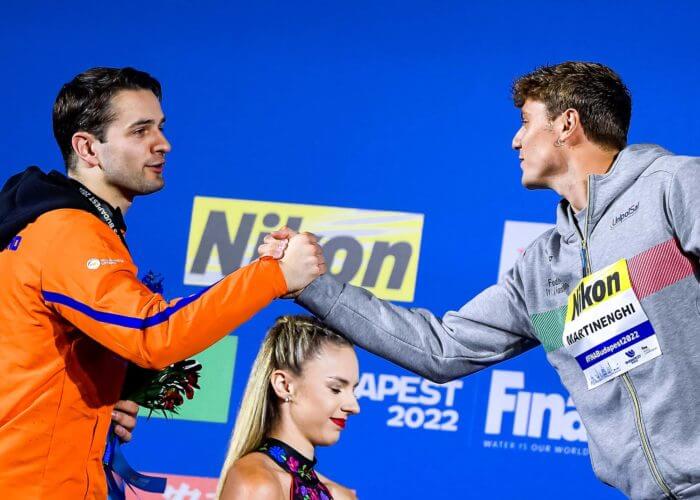
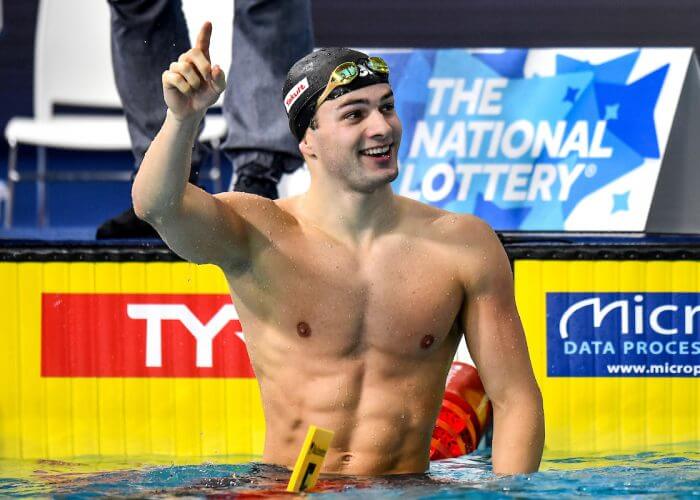
Lessons In Adversity
Drawing Inspiration From Popovici And Milak
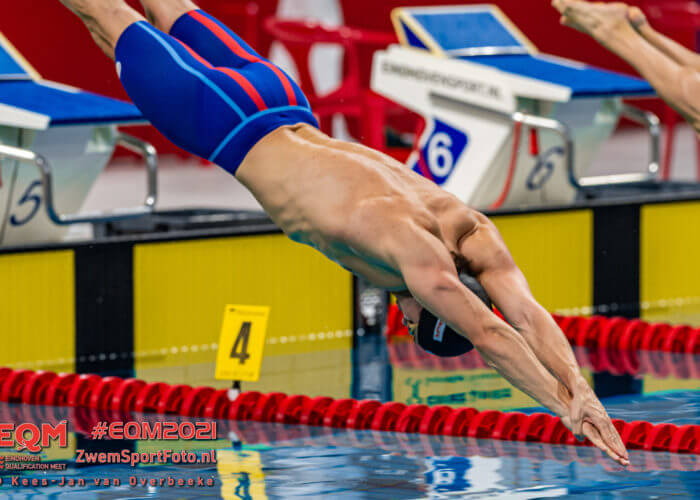
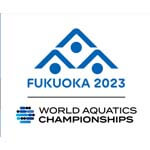
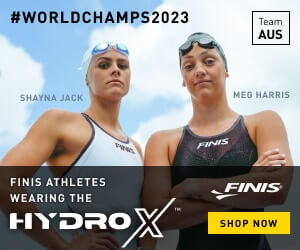




Good interview. Go Arno!!! 🙂